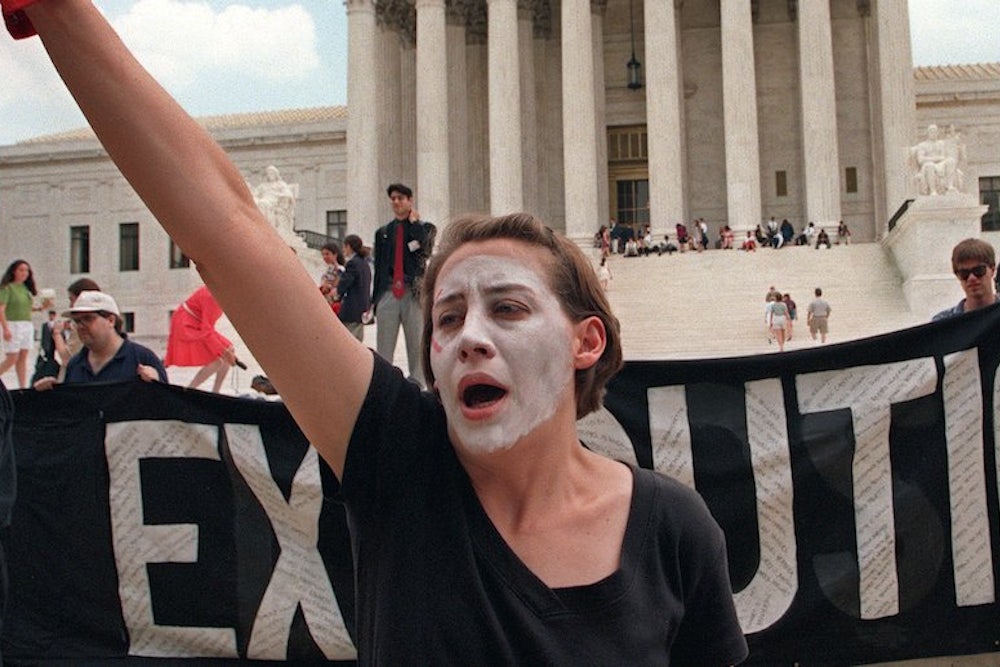Oklahoma officials say that Clayton Lockett’s botched execution Tuesday, which his lawyer said "looked like torture," was the result of how the lethal drugs were injected, not the drugs themselves. But the incident nonetheless adds credibility to the legal challenge of secrecy laws surrounding the source of drugs used in executions.
Oklahoma, like many other states that execute prisoners by lethal injection, has been intensely secretive about the drugs it uses. In 2011, Hospira, the only American company that made thiopental—a barbiturate anesthetic once used as the first of three drugs in a lethal injection—halted production after European officials threatened the company with an embargo. From there, states have shifted toward new, secret sources for drugs. Claiming they wanted to shield suppliers from threats, states across the country passed legislation that would maintain the secrecy of where the drugs came from. Oklahoma even bought the drugs used in Lockett's execution with cash to ensure that the transaction would be hard to detect.
As states have begun to conduct executions with drugs acquired through secretive means, the Supreme Court has thus far refused to weigh in. Earlier this month, Texas executed Tommy Lynn Sells after the Supreme Court refused to halt the execution over concerns about the secrecy surrounding the drugs that the state planned to use.
Lockett’s execution should draw renewed attention to the potential infliction of pain from drugs that are secret. Ultimately, the courts may find this secrecy is a violation of the Eighth Amendment’s ban on “cruel and unusual” punishment. In Baze v. Rees, the Supreme Court held that “A stay of execution may not be granted on [Eighth Amendment grounds] unless the condemned prisoner establishes that the state’s lethal injection protocol creates a demonstrated risk of severe pain. He must show that the risk is substantial when compared to the known and available alternatives.” Of course, it is impossible for the defendant to demonstrate the risks of the method of execution when the source and purity of the lethal drugs are kept secret from the public. For the courts to properly analyze the potential of a method of execution to induce severe pain, there needs to be transparency about how the execution is being carried out. In an 1890 case, the Court held that “Punishments are cruel when they involve torture or a lingering death,” and there is plenty of evidence that these lethal injections are creating "lingering deaths" in cases such as Lockett’s.
Today, there are a number of cases progressing through the federal courts that are challenging the secrecy laws surrounding lethal injections. Ultimately, the courts and potentially the Supreme Court itself will have to determine whether such secrecy violates the Constitution. The Court held in 2002 that the ban on cruel and unusual punishment “must draw its meaning from the evolving standards of decency that mark the progress of a maturing society.” While there may be a legitimate interest in protecting the suppliers of these drugs, our interest in protecting the integrity of our society’s most severe punishment is far greater.
